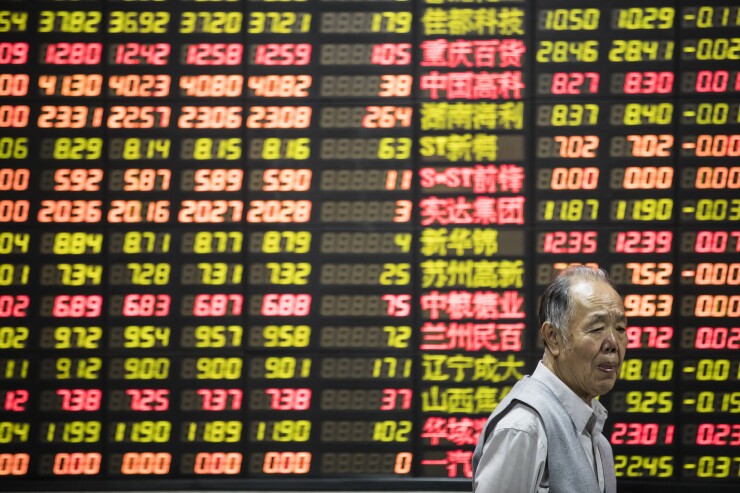U.S.-listed shares of China-based companies tumbled on Friday after Bloomberg reported that the White House is weighing limits on U.S. portfolio flows into China, a move that could affect Chinese stocks held in U.S. indexes.
According to the report, which cites people familiar with the internal deliberations, the Trump administration is considering delisting China-based companies from U.S. exchanges.
-
For the first time, fund managers must disclose a breakdown of their fees to banks, insurers and other distributors.
January 3 -
Unlike humans, the technology is not able to explain why it made a particular decision.
November 2 -
Investors may be growing impatient with implementation of the administration’s agenda, an analyst says.
November 9
Investors bemoaned the news, which they said exacerbated a trade war that has roiled equity markets for months. The move also comes at a critical juncture as China is removing limits on foreign investment in its financial markets.
“To say ‘We’re closing the gates, you can’t invest your money outside U.S. borders, it’s just ludicrous,” Jennifer Ellison, principal at San-Francisco based BOS, said by phone. “The market is a little tired of it.”
Among the most notable Chinese companies traded in the U.S., Alibaba sank 5.2% on more than double the three-month average trading volume. It had been little changed Friday prior to the report.
JD.com lost 6%, also turning abruptly lower following the news. Baidu fell 3.7% and Huya dropped 9.4%.
Among ETFs, the Invesco China Technology ETF dropped 2.8%. The iShares China Large-Cap ETF fell 1.2% while the broader iShares MSCI China ETF declined 2.2%. The KraneShares CSI China Internet Fund lost 3.8%.
The correlation between fees and performance is not “apples-to-apples when taking the funds’ underlying exposures into account,” an expert says.
The FTSE China A50 index futures shed 1.2% during U.S. trading hours.
“You want to see free capital flows, and if you start doing this kind of thing it just screws up the mechanics, it really does,” said Michael Mullaney, director of global market research at Boston Partners. “Things are going to get squeezed.” — Additional reporting by Vildana Hajric
Bloomberg News







